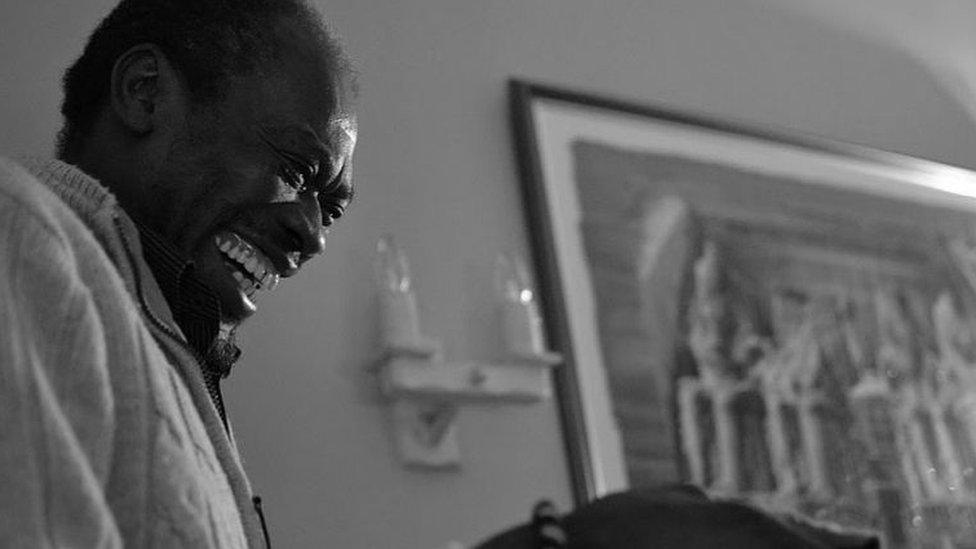Covid-19: Relief at the lifting of restrictions from a widow who spent lockdown alone
- Published
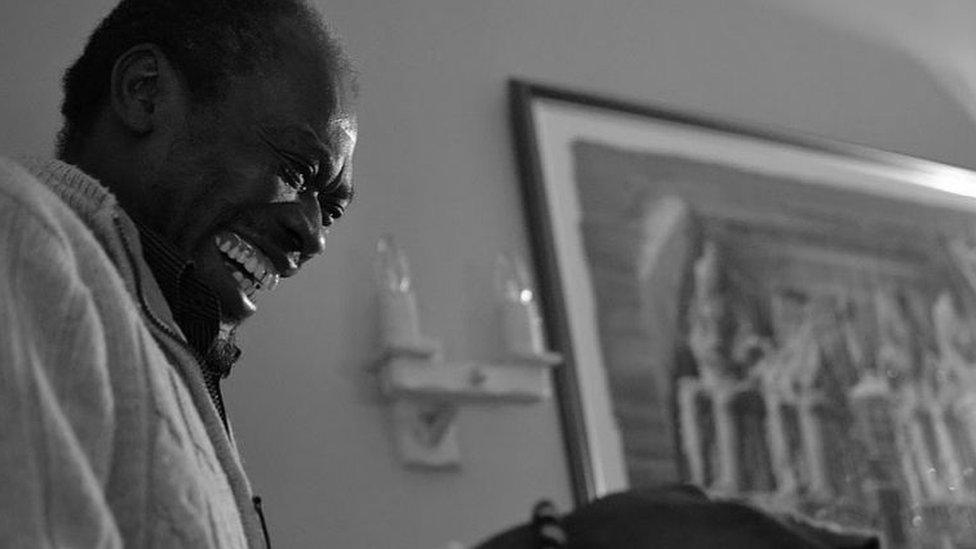
When Earl Sewell died, his wife was left to live alone for the first time in almost 40 years
Earl Sewell was one of the first to die with coronavirus in Birmingham. His widow, Jean, spoke about being plunged into lockdown almost straight after his death, and her relief restrictions are being lifted.
Earl Sewell died on 16 March 2020, just as England was realising the ferociousness of the pandemic.
His family, who had visited him in hospital just before his death, had to isolate immediately, leaving them facing challenges they could not have expected.
They could not even pick up his death certificate.
Almost straight away, on 23 March, the country went into lockdown, leaving Jean Sewell, 69, living alone for the first time in almost 40 years. At some points, her thoughts turned to suicide.
The circumstances in which Earl died, and what followed, was "awful", she said.
"Nothing was normal - we had six people at the funeral. And we could do nothing afterwards."
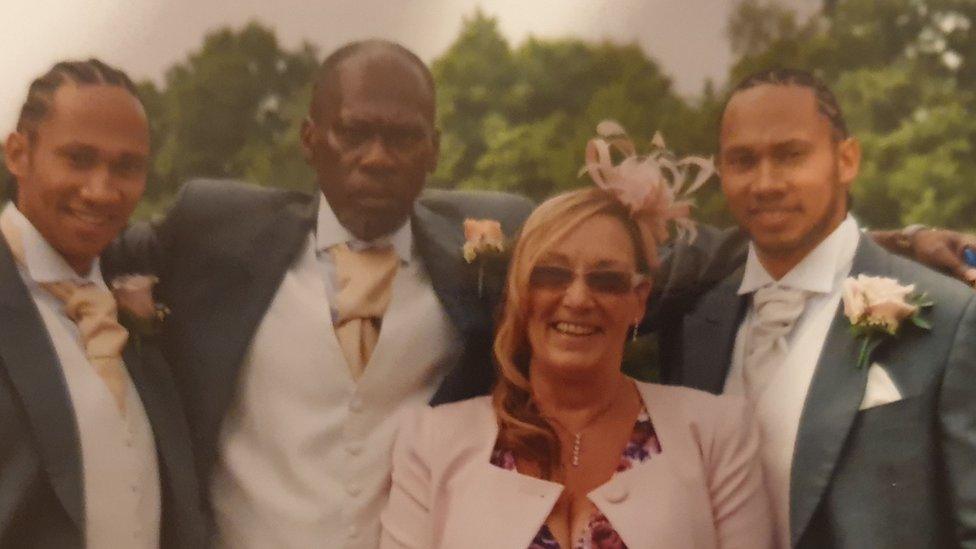
Earl Sewell with his wife and twin sons. Jean met Earl when she came to Birmingham from Sunderland to train to be a teacher
On the morning of the day he died Mr Sewell wrote a letter detailing what he wanted at the funeral and instructing his sons to look after their mother.
"So he was able to say what he wanted, which was a quiet funeral.
"He was from Jamaica where they have a huge funeral, a celebration of life, but he didn't want that. He wanted to save money to give to his granddaughter."
The family think he was the first person in Birmingham to die with coronavirus but they are not sure how they caught it.
"I'd had a cold, at least what I thought was cold, a week before," Mrs Sewell said.
Mr Sewell, who had been in hospital previously with pneumonia, started feeling unwell on Thursday.
By Friday, his temperature was slightly raised but oxygen levels had dropped. An ambulance was called and he was taken to hospital.
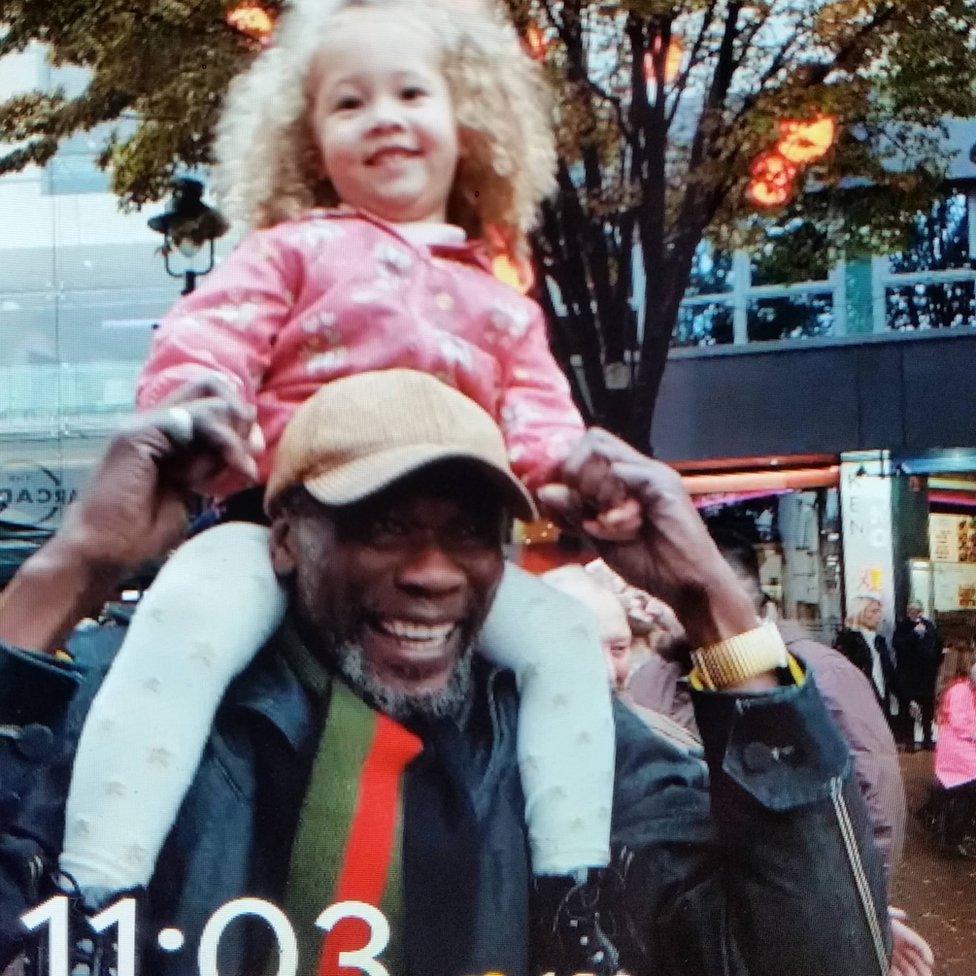
Earl Sewell with granddaughter Ariya. He was a popular figure in the community, his family said.
On Monday, Mrs Sewell was told Earl was probably not going to make it.
Initially they were told only one person could be with him, but eventually all his close family spent time with him.
"We were there for several hours, just holding his hand - and I relive that constantly," Mrs Sewell said.
"He could talk a little bit, and he was very dignified."
The official death cause was given as Covid-19 and pneumonia.
Mrs Sewell then, at a time she said she needed her family the most, spent 14 weeks alone in lockdown. With chronic obstructive pulmonary disease (COPD) she was declared vulnerable and had to isolate.
"It was absolutely horrendous.
"I have a garden fortunately, so I could go outside and I kept thinking about people who were locked down in flats who couldn't go out.
"I got my groceries delivered and that was my contact with the outside world."
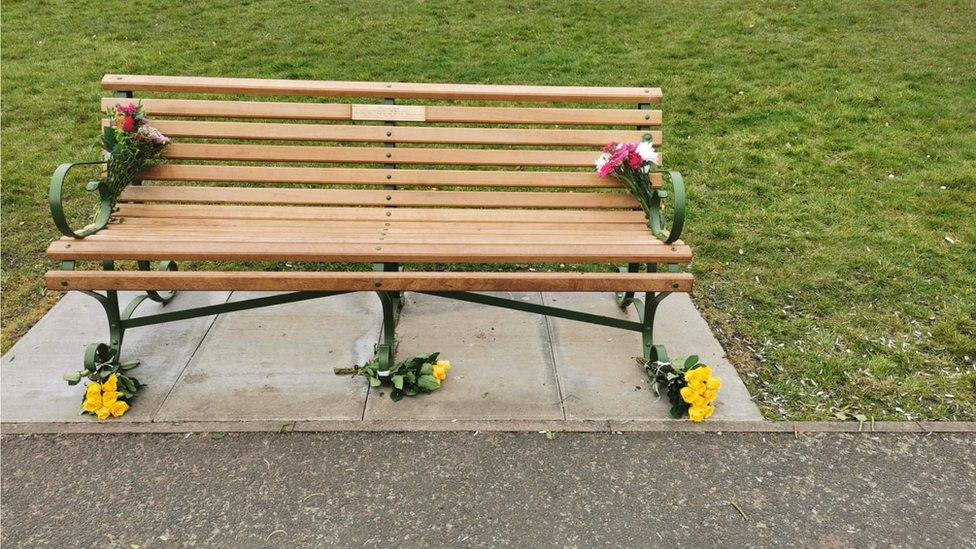
A memorial bench to Earl Sewell has been installed in Handsworth Park, where he loved to walk
She spent her days either in the garden, doing housework, decorating, and looking through old photos of Earl and listening to his reggae music.
Her sons, and friends, kept in touch with phone calls but she was unable to work Zoom and other methods that some people were able to use.
"All I could think about was Earl. I kept reliving him dying, I was feeling guilty - I kept asking could I have done more, did I give it [Covid] to him?
"Everybody was phoning me initially - but it does quieten down."
Her thoughts, she said, did turn to suicide.
"Life seemed pointless.
"I'm not on my own in that respect. I did get to a bad point but a friend reminded me about my sons, how would my sons have felt, and that sort of stopped me.
"We'd been together 50 years. It would have been our ruby wedding on 30 July.
"All the landmarks, birthdays and Christmas where you have to face empty chair syndrome.
"Thousands of people have gone through the same, and we are all still carrying on.
"People say time a is a great healer but 16 months on - its not."

The BBC Action Line has details of organisations offering information and support if you, or someone you know, has been affected by emotional distress.

A bench has been installed in their local park, Handsworth Park, in Earl's memory.
"He walked in the park nearly every day," Mrs Sewell said. "So did I."
Sixteen months on, she is pleased to see things returning to some sort of normal.
"I still wear a mask when I go in shops but I really think the lifting of restrictions was needed and I hope it lasts. It affected people's mental health," she said.
"I know people who won't leave the house, they are scared of catching Covid and they are scared of mixing again.
"I have offered to meet people in their gardens but they are too scared. What a way to live."
During the lockdown she came across a group on social media forum Facebook, the Covid bereaved widows group.
As well as pressing for an inquiry into how the whole pandemic was handled she said the group provided some support by allowing people to talk about their emotions.
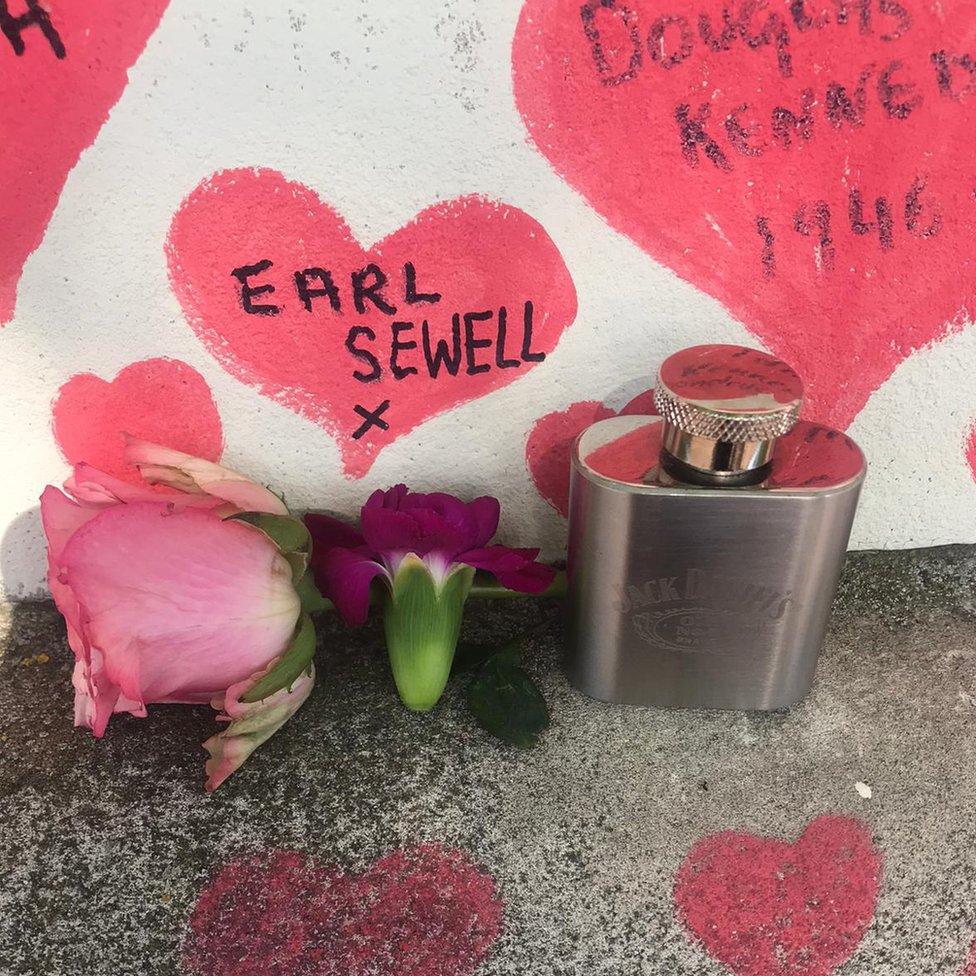
Earl Sewell's name on the National Covid Memorial Wall, which consists of thousands of painted hearts on a wall opposite the Palace of Westminster.
The hospital rings her to check on her, she says, and she was referred to Cruse Bereavement Care in December but says the charity is so inundated that she has not yet heard back from them.
Steven Wibberley, chief executive of Cruse, said since the start of the pandemic there had been an increase in demand for support.
"When the pandemic hit in March last year, we moved all of our face to face support to online and telephone, alongside this we also recruited over a thousand more volunteers.
"This has enabled us to significantly reduce our waiting lists. Some may wait slightly longer than we would hope in some areas, but we are doing all we can to support people as soon as we have trained volunteers available. Whilst on a waiting list, people may contact our Helpline for support in the interim, which is open seven days a week."
The charity has said it will contact her and offer their support.
Her priority is to take Earl's ashes, currently at her house, to Jamaica, where they visited friends and family every year.
The country is currently on the government's amber list for travel, external meaning people who have had two does of the Covid vaccine must isolate on their return but Mrs Sewell has not been vaccinated.
"I know that might surprise people given what happened," she said.
"But I am just concerned about its long-term effects."
For most people, getting the vaccination is not mandatory, although the government urges everyone who can have it to get it, external and says it has been rigorously tested.
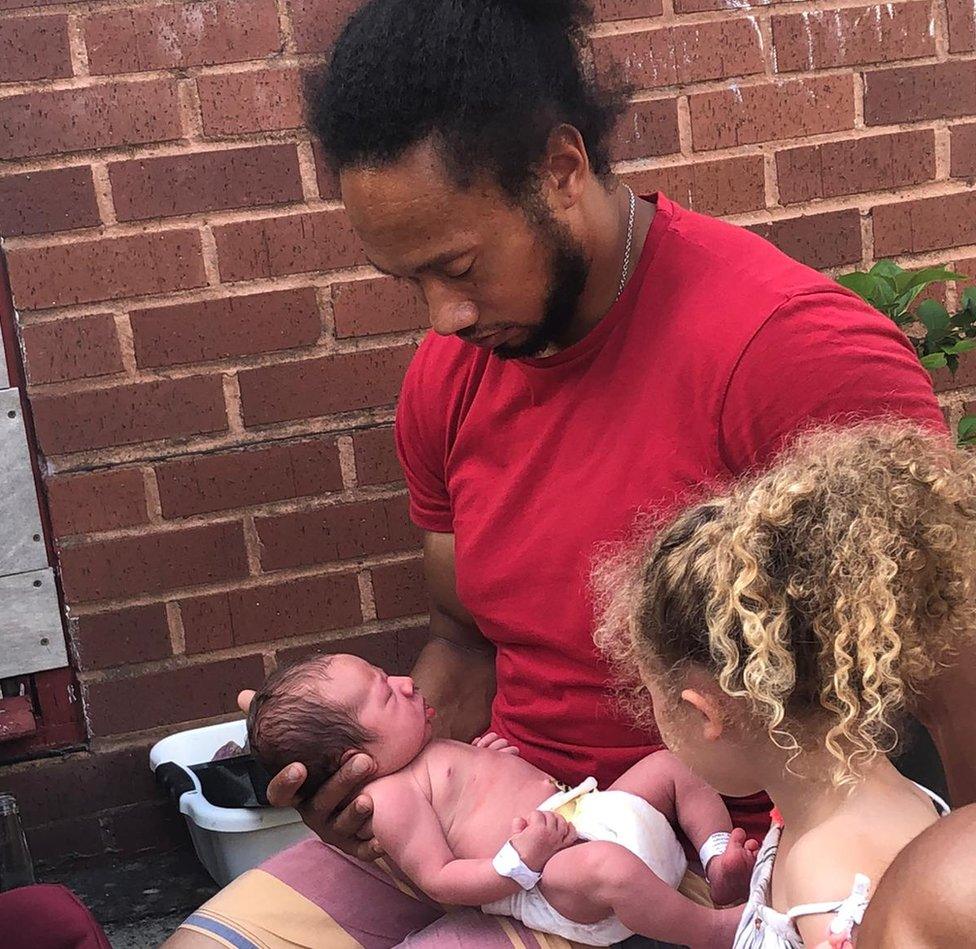
New grandson Leo with dad Leon and granddaughter Ariya. Jean Sewell is sad Earl is not here to see it
While she waits to visit Jamaica, she and her family hope to organise a celebration of Mr Sewell's life, for all the people who could not attend the funeral.
"People and neighbours all say they miss him.
"He made a good impact in people's lives. He was a good neighbour.
"And we have a new grandson. We have a granddaughter and Earl loved her to bits but a grandson would have made it for him."
Leo was born on 18 July. And another grandchild is on the way. Mrs Sewell's only regret is that her husband is not here to join in the celebrations.

Follow BBC West Midlands on Facebook, external, on Twitter, external, and sign up for local news updates direct to your phone, external.
- Published21 July 2021
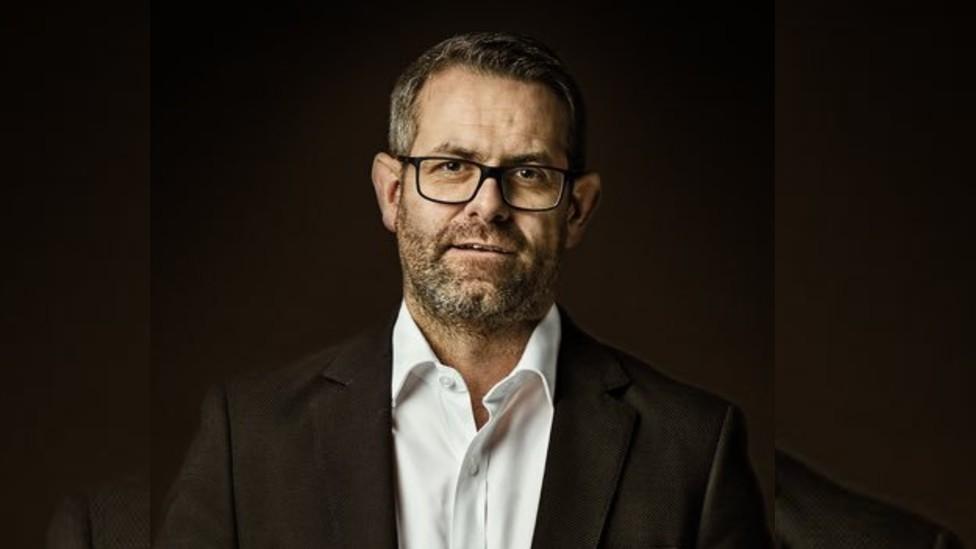
- Published1 July 2022

- Published18 March 2020
